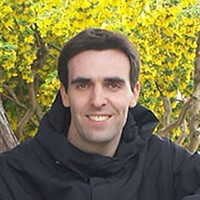To catch a terrorist: Why extreme vetting may be an outdated solution
Loading...
Extreme vetting may be a solution in search of a problem, according to an internal Homeland Security intelligence report.
Most foreign-born terrorists radicalize more than a decade after entering the US, says the assessment. This result suggests a shift in the nature of the threat from Al Qaeda like "terrorism-directed" activity to the ISIS "terrorism-inspired" activity. This new security reality may require a new approach completely different from the Trump administration's expansion of outdated 9/11 era policies.
"I’m establishing new vetting measures to keep radical Islamic terrorists out of the United States of America. We don’t want them here," President Trump said, justifying the executive order temporarily banning citizens of seven predominantly Muslim countries. "We only want to admit those into our country who will support our country and love deeply our people."
The Department of Homeland Security office of Intelligence and Analysis analyzed the cases of 88 people who engaged in terrorism-related activities, including planning attacks or funding overseas organizations, and concluded that most lived in the US for over a decade before being charged or killed. Nearly half had entered the country as minors. MSNBC’s “The Rachel Maddow Show” first reported the document, which was later confirmed as genuine by ABC.
"This intelligence assessment absolutely undermines the justification for the proposed travel ban," said John Cohen, an ABC News contributor and former acting undersecretary for intelligence at DHS.
Homeland Security cautions against overinterpreting the report, which is based only on “unclassified, open source materials,” rather than classified data. But Mr. Cohen says the DHS would never have published the assessment if it had conflicted with current intelligence.
The document also supports the results of a previous DHS study concluding that extremists charged in 2015 radicalized on average 13 years after entering the country, as well as a George Washington University terrorism program, which found that “the vast majority” of Islamic State offenses in the US were carried out by citizens or permanent residents.
According to Obama administration Homeland Security Director Jeh Johnson, the world has changed since 9/11. “We have moved from a world of terrorist-directed attacks, to a world that also includes the threat of terrorist-inspired attacks,” he testified to congress last year.
“By their nature, terrorist-inspired attacks are often difficult to detect by our intelligence and law enforcement communities, could occur with little or no notice, and in general, make for a more complex homeland security challenge,” said Mr. Johnson.
He went on to explain that the US already has “enhanced vetting”, including reviewing the social media of Syrian refugee applicants. In 2015 the US denied boarding to almost 11,000 travelers through pre-clearance, and Congress has already authorized $1 billion to develop and implement a biometric entry/exit system that could be ready for rollout as soon as 2018.
Johnson attributes the US’s vanishingly low terrorism rate to capable and efficient security efforts. “On the law enforcement side, the FBI continues to, in my judgment, do an excellent job of detecting, investigating, preventing, and prosecuting terrorist plots here in the homeland.”
Despite how advanced the current vetting system may be, predicting during immigration whether a resident will succumb to terrorism recruitment campaigns ten years down the road is a tall order. Johnson says the US needs a different approach.
When it comes to stopping the terrorist-inspired attacks that do pose a threat, it’s not travel bans and extreme vetting that could do the most good. Johnson suggests making it harder for terrorists to get guns could prevent future tragedies like San Bernardino and Orlando.
He also stresses the importance of maintaining good relationships with America’s diverse communities.
“Well informed families and communities are the best defense against terrorist ideologies. Al Qaeda and ISIL are targeting Muslim communities in this country. We must respond. In my view, building bridges to our communities is as important as any of our other homeland security missions.”
To that end, DHS created the Office for Community Partnerships in 2015. With this new initiative, Johnson suggests building bridges between law enforcement and diverse communities may be an important element in national security, along with the barriers already in place at the nation's borders.
"We are focused on partnering with and empowering communities by providing them a wide range of resources to use in preventing violent extremist recruitment and radicalization. Specifically, we are providing access to federal grant opportunities for state and local leaders, and partnering with the private sector to find innovative, community-based approaches."








